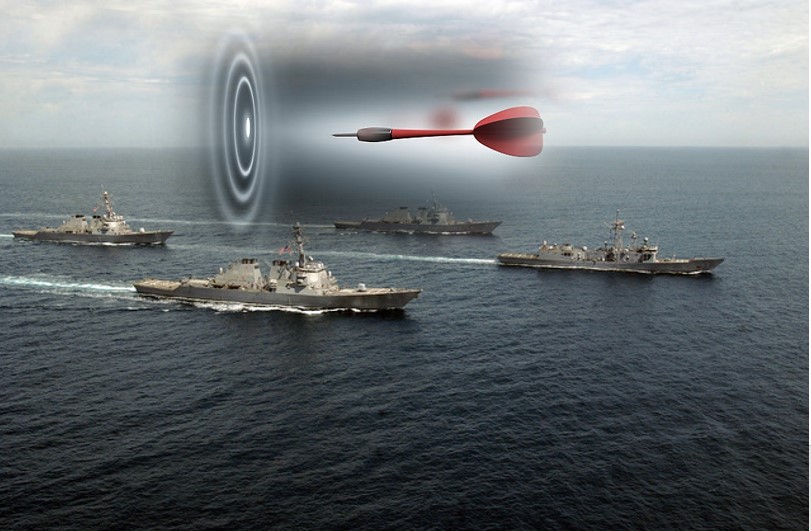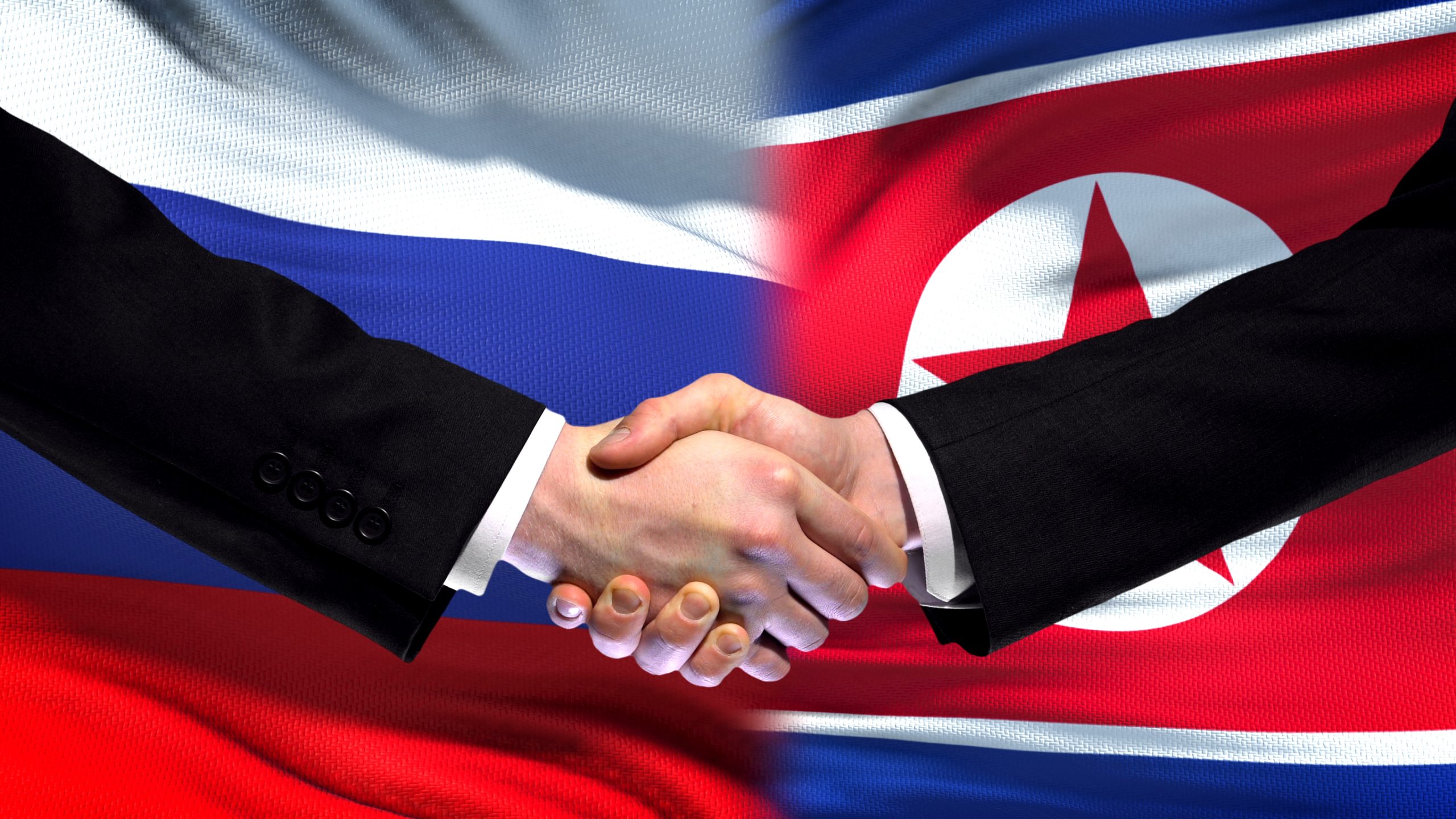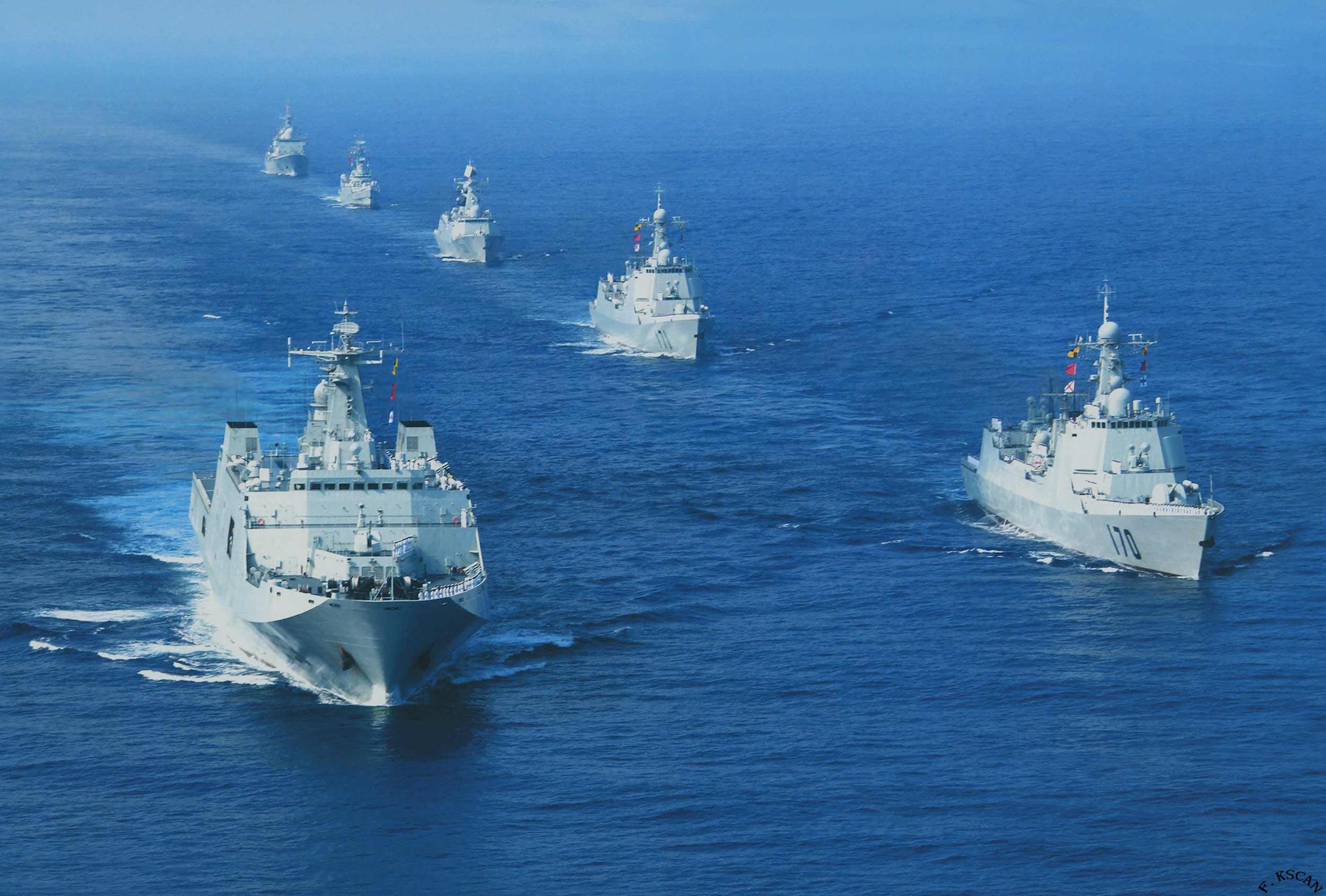
US Navy FONOPS: Confused Messaging
Wed, 14 Apr 2021 | Reading Time: 6 minutes

US Navy FONOPS: Confused messaging
The content and timing of the US 7th Fleet release on its Freedom of Navigation Operations (FONOPS) in India’s Extended Economic Zone (EEZ) near Lakshadweep Islands a few days ago has been embarrassing for India. Growing naval cooperation has been a high point of India’s deepening strategic partnership with the US in recent years. The principal driving force behind this is the rising maritime ambitions of China, reflected in its encroachments in the South China Sea and an expanding foothold in the Indian Ocean as part of its so-called Maritime Silk Road strategy.
US power is being challenged in the western Pacific where the US has defence treaties with individual countries, military bases and forces stationed on the ground, apart from the presence of its potent 7th Fleet. India is concerned about China’s increasing presence in the Indian Ocean, its construction and acquisition of ports in key countries such as Sri Lanka and Myanmar, not to mention Gwadar in Pakistan. China has a naval base already in Djibouti, with one in Pakistan certainly to follow. Chinese submarines operate in the Indian Ocean. China’s naval construction is unprecedented, with the declared goal of developing a blue water navy capable of protecting its overseas assets. We can foresee a growing Chinese naval threat in the Indian Ocean.
This provides the strategic underpinning to the India-Pacific concept and the Quadrilateral framework (Quad). China’s repudiation of the United Nations Convention on the Law of the Sea (UNCLOS) to which it is a party, and the arbitral award against it on its claims in the South China Sea contested by Philippines, and, in general, its violations of international law have provided the rationale to link the security of the western Pacific to that of the Indian Ocean, blending together the concerns of the US, Japan, Australia and India about China’s threatening maritime ambitions. If China were not to openly seek hegemony, develop the military sinews for it after acquiring economic muscle and launching the Belt and road Initiative, be respectful of the sensitivities and legitimate interests of others, did not make unfounded sovereignty claims, China’s rise could be accommodated without danger to the security of others. But that is not the case.
The US, not having intervened in time to prevent the reclamation, occupation and militarisation of reefs in the South China Sea, has now been conducting FONOPS in the areas China has planted itself. These operations signify a contestation of China’s sovereignty over these reefs, and beyond that non-recognition of any associated EEZs. In addition, pertinently, asserting the freedom of navigation and over flights in this space. The US has been doing these FONOPS in other parts of the world to enforce its understanding of international law and assert the right of its navy to operate unhindered in what it views as international waters being subjected to unlawful restrictions by coastal states. The US has the world’s strongest naval fleet, which is a major tool for the extension of its power globally. No other country can move its naval forces to virtually all points in the globe as the US navy can do. Full freedom of navigation (FON) is therefore an integral part of the exercise of global power by the US. FON, as asserted by the US, is power couched as a principle.
FON has been an issue in India-US relations since long. The US exercises this freedom in India’s maritime space without seeking our consent and we have been protesting diplomatically. Even when our bilateral relations were not as close as they are today, we played US violations in low key, out of the public view. Without raising a public controversy, the annual reports of the Pentagon for 2015, 2016, 2027 and 2019 listed FONOPS in the Lakshadweep area. This was a wise way to handle differences without hindering vastly expanded India-US naval cooperation over time, beginning with the Malabar exercises, extended in scope and complexity with the participation of US aircraft carriers and submarines, the signing of the logistics agreement which gives US navy vessels to Indian facilities, the boosting of India’s maritime surveillance capacities by the acquisition of the US PI8 Poseidon aircraft, the leasing of Sea Guardian drones, intelligence sharing etc. With Japan and Australia joining the Malabar exercises, the Quad has acquired a more prominent security dimension. The recent Quad virtual summit has raised the profile of the grouping to new levels, which China has adversely noted.
In this background the manner in which the US 7th Fleet publicly announced in a challenging tone its FONOPs in the Indian EEZ makes no political sense. India’s position on US FONOPS in Indian waters is well known; no new Indian claims have been made or restrictions announced. Where was then the need to publicly announce that the FONOPS took place in the EEZ claimed by India around Lakshadweep, specifically pointing out that this done without seeking India’s consent, that India’s excessive maritime claims around the Lakshadweep were being challenged, and that the US navy was acting in accordance with international law.
The reality is that UNCLOS has not specifically addressed the issue of military passage through the EEZs. Article 52 on Innocent Passage through archipelagic waters says nothing about operations by military vessels. Article 87 on Freedom of the High Seas also does not address operations by military vessels. India’s related 1976 law requires foreign military vessels to take prior consent before entering into India’s EEZ. On UNCLOS, India’s position is that it “does not authorise other states to carry out in the EEZ and on the continental shelf, military exercises or maneuvers, in particular those involving the use of weapons or explosives, without the consent of the coastal state”.
In the face of the provocative release by the US Navy, India was compelled to react. The Ministry of External Affairs has stated that the USS John Paul Jones “was continuously monitored transiting from the Persian Gulf towards the Malacca Straits” and that “we have conveyed our concerns regarding this passage through our EEZ to the government of USA through diplomatic channels.” Our statement restated our position on the UNCLOS, namely that it “does not authorise other states to carry out in the Exclusive Economic Zone and on the continental shelf, military exercises or maneuvers, in particular those involving the use of weapons or explosives, without the consent of the coastal state”.
Some effort has been made on the US side to defuse the issue, with the Pentagon spokesperson evading a response to questions about the issue involving India’s EEZ by limiting his answer to FONOPS in the EEZ of Maldives and Innocent Passage through its territorial sea. Whether the public contention over FONOPS in the Lakshadweep EEZ will lead to a revision of US SOPS on announcing them each time they take place rather than in a consolidated annual report remains to be seen. One should not expect the US to change its fundamental position on its right to do unfettered FONOPS and its understanding of international law.
The US has to find a way to distinguish between its FONOPS in areas where its presence and power is contested and the context is one of danger to freedom of navigation that affects the interests of the international community as a whole, and where it is simply an assertion of principle even against friendly countries with which there is a difference of opinion on international law as such, or as embodied in UNCLOS to which the US is not a party. Now that the Biden administration is rejoining international treaties it will do a service to itself and the international community if it ratified UNCLOS and ended this unilateralism in interpreting international maritime law to suit its purposes.
The US must distinguish its approach on this issue towards India and China. Treating both on an equal footing with regard to Freedom of Navigation issues is politically absurd. India and the US, bilaterally and in the Quad framework or the Indo-Pacific concept cannot together support the principle of freedom of navigation if that freedom becomes a tool by the US for giving short shrift to India’s legal position on its maritime rights. US has to look at the larger picture and fine tune its position. India has no interest in sharpening the differences over this issue and would prefer to deal with them diplomatically. The US has to find a way to somehow put the cat back in the bag.
Author

Kanwal Sibal is a distinguished career diplomat who retired as Foreign Secretary to the Government of India. In 2017, The Government of India awarded him with the Padma Shri award for his distinguished services in the field of Public Affairs.
Disclaimer
The opinions expressed in this article are the author’s own and do not reflect the views of Chanakya Forum. All information provided in this article including timeliness, completeness, accuracy, suitability or validity of information referenced therein, is the sole responsibility of the author. www.chanakyaforum.com does not assume any responsibility for the same.
Chanakya Forum is now on . Click here to join our channel (@ChanakyaForum) and stay updated with the latest headlines and articles.
Important
We work round the clock to bring you the finest articles and updates from around the world. There is a team that works tirelessly to ensure that you have a seamless reading experience. But all this costs money. Please support us so that we keep doing what we do best. Happy Reading
Support Us




















POST COMMENTS (0)